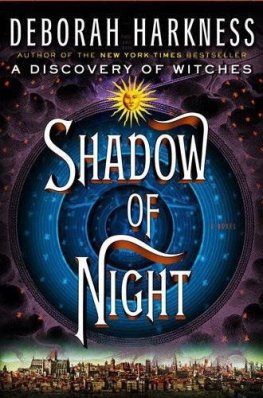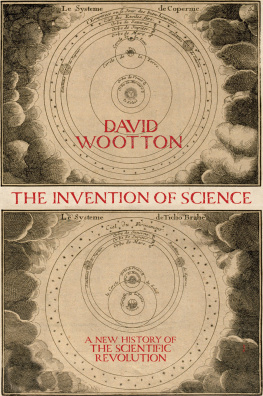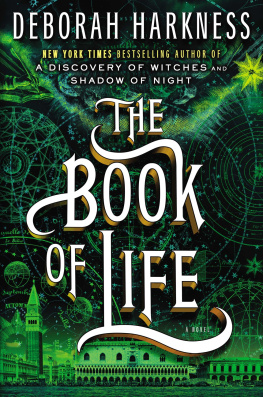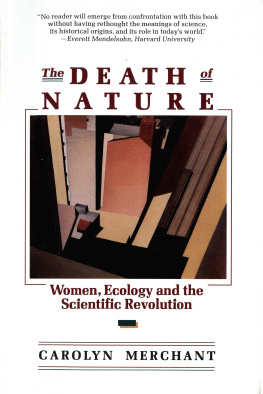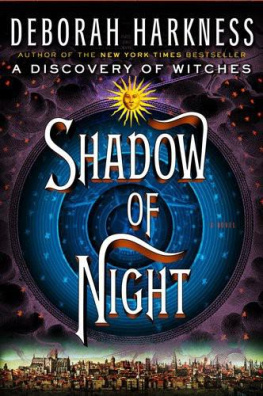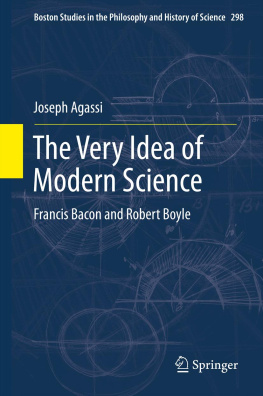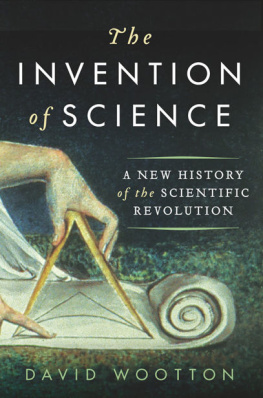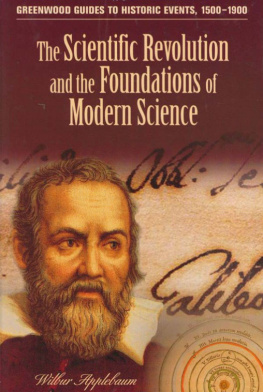T HE J EWEL H OUSE
T HE J EWEL H OUSE
Elizabethan London and the Scientific Revolution
Deborah E. Harkness
Yale University Press
New Haven & London
Published with assistance from the Louis Stern Memorial Fund.
Copyright 2007 by Deborah E. Harkness.
All rights reserved.
This book may not be reproduced, in whole or in part, including illustrations, in any form (beyond that copying permitted by Sections 107 and 108 of the U.S. Copyright Law and except by reviewers for the public press), without written permission from the publishers.
Set in ElectraLH and Trajan type by The Composing Room of Michigan, Inc. Printed in the United States of America by Vail-Ballou Press, Binghamton, New York.
Library of Congress Cataloging-in-Publication Data
Harkness, Deborah E., 1965
The Jewel house : Elizabethan London and the scientific revolution / Deborah E. Harkness.
p. cm.
Includes bibliographical references and index.
ISBN 978-0-300-11196-5 (cloth : alk. paper) 1. Science England London History 16th century. 2. Natural history England London History 16th century. 3. Science, Renaissance. 4. London (England) Social conditions 16th century. 5. London (England) Social life and customs 16th century. 6. London (England) Intellectual life 16th century. I. Title.
Q127.G4H37 2007
509.42109031 dc22
2007002683
A catalogue record for this book is available from the British Library.
The paper in this book meets the guidelines for permanence and durability of the Committee on Production Guidelines for Book Longevity of the Council on Library Resources.
10 9 8 7 6 5 4 3 2 1
For Karen Halttunen
the sine qua non
It is the manner of men first to wonder that any such thing should be possible, and after it is found out to wonder again how the world should miss it so long.
Francis Bacon, after Titus Livius, Valerius Terminus (1603)
C ONTENTS
TWO The Contest over Medical Authority:
Valentine Russwurin and the Barber-Surgeons
THREE Educating Icarus and Displaying Daedalus:
Mathematics and Instrumentation in Elizabethan London
FIVE Clement Drapers Prison Notebooks:
Reading, Writing, and Doing Science
SIX From the Jewel House to Salomons House:
Hugh Plat, Francis Bacon, and the Social Foundations of the Scientific Revolution
A CKNOWLEDGMENTS
During the years it took to research and write this book, I was privileged to receive the support of the Huntington Library, the National Science Foundation Grant 80813, the University of California at Davis, the University of Southern California, the John S. Guggenheim Foundation, and the National Humanities Center. Additional thanks go to the National Endowment for the Humanities (which supported my time at the Huntington Library), the University of California at Davis Chancellors Fellows Program, and the Mellon Foundation (which supports the John Sawyer Fellowship I received at the National Humanities Center).
While writing I enjoyed the intellectual benefits associated with being part of not one but several intellectual communities. My students Celeste Chamber-land, Michele Clouse, Brooke Newman, and Christina Ramos helped me to keep my perspective. They are all fine historians, and it has been a privilege and pleasure to work with them over the years. At the University of California at Davis my colleagues Joan Cadden, Fran Dolan, Margie Ferguson, and Cathy Kudlick were enormously supportive of this project. At the University of Southern California, I am surrounded by gifted urban and cultural historians who have been generous with their enthusiasm and feedback, and I especially thank Phil Ethington, Joan Piggott, and Vanessa Schwartz for their interest in a city and time far distant from those that they study. At USC I am fortunate to be among a diverse cadre of British historians, and I am deeply grateful for the intellectual companionship of Judith Bennett, Lisa Bitel, Cynthia Herrup, Philippa Levine, Peter Mancall, and Carole Shammas each of whom has influenced this project. My special thanks go to Cynthia Herrup, who told me when I began this project that studying science in the age of Elizabeth was probably sufficient for a single book, and who shared her insightful comments with me when the manuscript was completed.
The National Humanities Center made it possible for me to take fifteen file tubs of notes and transform them into a book. My fellow fellows of the National Humanities Center class of 20045 were an inspiration, especially my colleagues in the Life Stories Seminar, Julia Clancy-Smith, Ed Curtis, Tom Kaiser, Lisa Lindsay, Gregg Mitman, Cara Robertson, and Tim Tyson. Kent Mullikan, Lois Whittington, and Bernice Patterson put a smile on my face as soon as I walked in the door. The library staff of Liza Roberts, Betsy Dain, Jean Houston, and their crack team of book pagers at Duke and the University of North Carolina helped me to have an inconceivable number of books and articles at my fingertips. Marie Brubaker provided invaluable assistance with photocopying, and Karen Carroll was an expert copy editor for the preliminary manuscript. Phillip Barron and Joel Elliott fixed my computer more times than they should have had to in a just world. Jana Johnson and Kristen Rosselli offered up the hospitality for which the South is justly famous. And, for more than a year at the North Carolina Research Triangle, Tom Cogswell, Lynda Coon, Maura Nolan, Cara Robertson, Ding-Xiang Warner, and Georgia Warnke provided me with that most essential ingredient of productive scholarship: friendship.
The following institutions and organizations provided me with an opportunity to present my work, and I thank my hosts and audiences for their probing comments when earlier versions of this book were presented: the American Historical Association Annual Meeting; Cornell University; Drew University and the New Jersey Shakespeare Festival; Duke University Medieval and Renaissance Studies; Durham University Thomas Harriot Seminar; Five-College Renaissance Studies Faculty Colloquium; History of Science Society Annual Meeting; the Huguenot Society and His Royal Highness the Prince of Wales; Huntington Library Early Modern British Seminar; Huntington Library Renaissance Seminar; Johns Hopkins University History of Medicine Program; Mount Holyoke College; the National Humanities Center; New College, Oxford University; North Carolina Graduate Colloquium in Medieval and Renaissance Studies; Pomona College; Princeton University; Renaissance Society of America Annual Meeting; Stanford University; University of California at Berkeley; University of California at Davis Chancellors Club; University of California at Davis Cross-Cultural Womens History; UCLA Center for Seventeenth- and Eighteenth-Century Studies; UCLA Science Studies Colloquium; University of Chicago Eric Cochrane Symposium; University of Mississippi Renaissance Early Modern Studies Symposium; University of North Carolina Renaissance Workshop; University of San Diego Science Studies Colloquium; Santa Clara University; University of Southern California Department of History; and the USC-Huntington Early Modern Studies Institute.
No work of history can be completed without the patient assistance of scores of librarians. I would like to particularly thank the librarians and archivists of the following institutions for supporting my research: the Bodleian Librarys Duke Humfreys Reading Room Staff; the Corporation of London Records Office; the Family History Centre, London; the Greater London Records Office; London Guildhall Library Manuscript Services; the London Metropolitan Archives; Magdalen College, Oxford; Pembroke College, Cambridge; and St. Bartholomews Hospital Archives, London. Two libraries deserve special mention: the Huntington Library and the British Library. The rare book and manuscript staffs at both institutions were especially helpful, despite my never-ending requests for more books and manuscripts.
Next page

